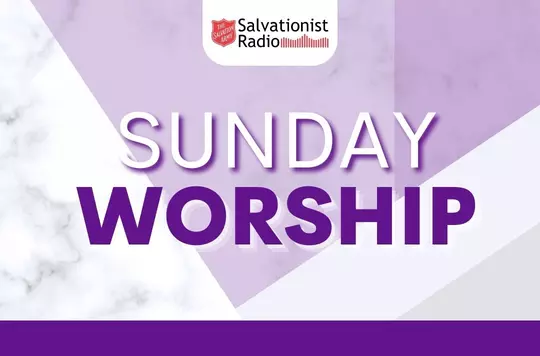19 August 2023
The benefits of wisdom
Major Antony Mugford
Major Antony Mugford offers some words to the wise.
Key text
Can you recall any family wisdom shared with you? Mine always seemed to be sight-related: ‘Don’t sit near the telly, you’ll get square eyes.’ ‘Eat your carrots, you’ll see better in the dark.’ There was more significant wisdom, of course, and in our youth we might have disregarded the wisdom of our elders, as we tested truth for ourselves.
Watching the Coronation earlier this year, I wondered what 21st-century minds were making of the old wisdom enshrined in the ancient liturgy of that sacred occasion. The Archbishop of Canterbury presented a Bible to King Charles III with the words: ‘Receive this book, the most valuable thing that this world affords. Here is wisdom. This is the royal law. These are the lively oracles of God.’
Today, when so much new thinking purports to be ‘wisdom’, one might wonder how many people would look to biblical wisdom as their inspiration.
Proverbs 2 speaks clearly into a world where ‘my truth’ or ‘follow your heart’ is seen as much a firm foundation as any other. A proverb is a statement of truth that is grounded in experience and gathered over time.
Pause and reflect
- Think back to your family proverbs.
- Are there examples of authentic wisdom that still influence you?
- Do you pass them on?
- Are there Bible verses that still come to mind from your Sunday school days?
Proverbs 2:1–5 encourage us to look for wisdom. It’s revealing that in our world of quickly-arrived-at opinions and individualistic feelings, the ‘my son’ of this passage is called upon to make an effort to hear the wisdom of the past – to turn his ear to it, accept it and store it up.
Look at the other verbs in the passage that the older man uses. Here is a call to look positively at the accumulated wisdom of the past. It takes effort. Perhaps it might even challenge our thinking, as we are called to value this shared wisdom.
The Salvation Army Handbook of Doctrine tells us that Scripture is ‘not safely read without reference to the general understanding of the Christian community throughout history’.
I once heard that wisdom comes by revelation, not speculation. Wisdom comes as we search the teaching of the past and apply it to our daily situations.
Pause and reflect
- Finding wisdom helps us to understand the fear of the Lord and the knowledge of God (see v5). What might this mean in your experience?
To find wisdom, we must search. But we are also told that God gives us wisdom (see vv6–9). In the Gospels, Jesus commends the wise man for building his house upon a rock (see Matthew 7:24 and 25) and the wise virgin for being prepared for the bridegroom’s arrival (see Matthew 25:1–13).
Paul identifies wisdom as one of the gifts of the Holy Spirit (see 1 Corinthians 12:8). Stephen was someone who exercised the gift of wisdom. Describing the opposition Stephen faced, Luke writes: ‘But they could not stand up against the wisdom the Spirit gave him as he spoke’ (Acts 6:10).
In his letter, James writes: ‘If any of you lacks wisdom, you should ask God, who gives generously to all without finding fault, and it will be given to you’ (James 1:5).
In the end times, Christians will need wisdom to identify ‘the beast’ (Revelation 13:18) and to discern the signs of the time (see Revelation 17:9).
Proverbs 2:7 holds out a challenge. For the upright and blameless, wisdom is aligned with ‘success’ and the protection of ‘a shield’. Wisdom and holiness go together. Wisdom is given to enable a believer to understand and to choose what is right and just. In Christian terms, the cleansing, empowering Holy Spirit is indeed ‘the Spirit of wisdom and of understanding’ (Isaiah 11:2).
Pause and reflect
- Can you think of times in your life when God has given you much-needed wisdom?
Understanding and following the right path is not just mental decision or intention. Verse 10 promises that wisdom will ‘enter your heart’. We don’t live cloistered lives; a 21st-century world influences and challenges the most devoted disciple of Christ. The writer dramatically speaks of ‘wicked men’ and ‘devious ways’ and the ‘wayward woman’. Jesus spoke of a ‘wicked and adulterous generation’ (Matthew 16:4). Strong words! Biblical language can often be overstatement or exaggeration for effect. We might not ascribe wickedness to people around us.
John Gowans’ lyrics for ‘I Believe That God the Father’ remind us that: ‘In a world of shifting values,/ There are standards that remain,/ I believe that holy living by God’s grace we may attain’ (SASB 34).
Wisdom in the heart leads to a holiness experience that makes a better me; it keeps us within the boundaries God has set for us rather than us comparing ourselves to others. Proverbs 2 is personal advice to the one who wants to know how to live a holy life – ‘my son’ (v1).
The writer of Proverbs 2 warns of external temptations, danger zones to avoid. He assures us that wisdom gained through searching the old truths received from God, and experienced in the heart, will keep us blameless. His promise encourages us: ‘Thus you will walk in the ways of the good and keep to the paths of the righteous’ (v20).
Pause and reflect
- What personal boundaries might need strengthening?
- What might you do to gain more of this promised heart-wisdom?
Our Salvation Army songs are a helpful source of spiritual wisdom and strength. Meditate on song 34 alongside Proverbs 2.
Bible study by

Major Antony Mugford
Corps Officer, Guisborough
Discover more

Captain (Dr) Will Pearson, a member of the Moral and Social Issues Council, considers the rise of alcohol-free drinks in society.



